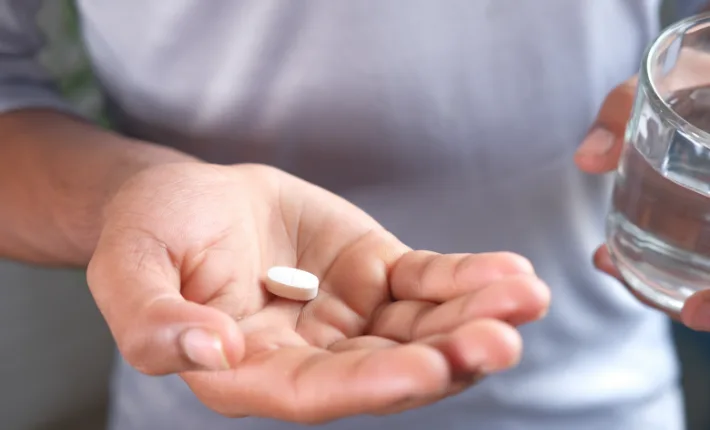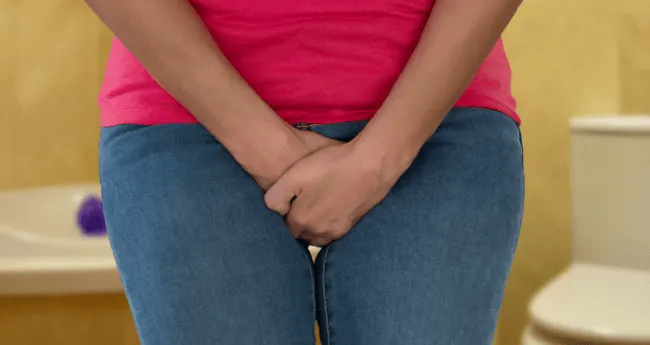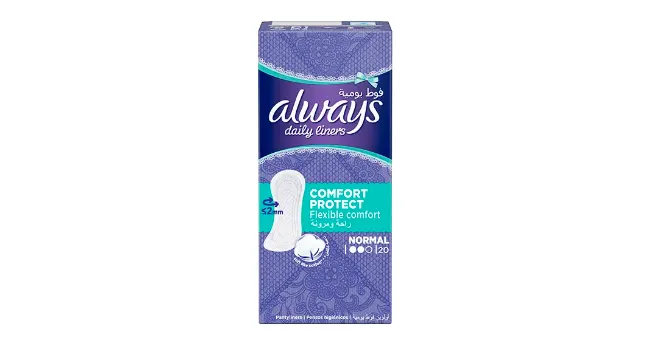Can a yeast infection delay your period? Get your answers here

Periods are a difficult time for most women, with mood swings, cramps and bloating causing pain and discomfort. But when you get a yeast infection while on your period, it can get even more annoying.
But beyond the unpleasantness of it all, does yeast infection affect your period in any way? If you’re wondering if yeast infection can delay your periods, it’s imperative to understand the effect it has on your period.
What is yeast infection?
Vaginal yeast infection is a fungal infection that can cause irritation in and around the vagina. Its symptoms include itching, thick white discharge, and pain while urinating.
Causes of yeast infection before or after your period
Here are some of the common causes of yeast infection before or during your period:
- Hormonal imbalance - Typically, in a healthy vagina there is a balanced mix of yeast and bacteria. The same hormones that trigger menstruation can also be responsible for disrupting the balance of the yeasts and bacteria that are naturally present in the vagina.
- Overgrowth of Candida fungus – If a certain type of fungus called Candida overgrows in your vagina, then it can lead to a yeast infection. There are many strains of Candida that could cause yeast infection, but the common strain is Candida albicans.

The above two reasons are the most common causes of yeast infection. The other reasons why there can be an overgrowth of Candida are mentioned below:
- Immune system that’s weakened
- Uncontrolled diabetes
- If you take oral contraceptives that increase the body’s oestrogen levels
- If you consume antibiotics
- If you’re pregnant.
Does yeast infection affect periods?
One of the most asked questions pertaining to yeast infection while on period, is ‘can a yeast infection delay your period?’. While some believe that yeast infection before period can cause a delay, the fact is that there is no medical evidence that proves the same. So, scientifically, yeast infections aren’t believed to affect your menstrual cycle in any way or form.
However, if you’ve missed a period or gone one to two months without a period, it’s best to consult a doctor about the same. Meanwhile, if you get a yeast infection while on your period, then that can be a source of great discomfort. When you get your periods, the level of hormones in your body sees a lot of fluctuations, leading to changes in the pH balance of the vagina. These changes coupled with a yeast infection could aggravate things. Moreover, yeast infections are known to grow in surroundings that have excess moisture. Which is why it is important to keep your vaginal area clean, especially during your periods.
To tackle this, use good quality absorbent sanitary pads like Always pads that soak discharge quickly. Try Always Cotton Soft pads which offer ultimate comfort and protection. It comes with a comfortable top sheet that soaks liquid fast. Its Innovative soft design provides cushiony soft comfort. With unique flexi wings, the pad stays in place so you can move around freely.
If you prefer using tampons instead, try Always’ Tampax Compak tampons which are designed to have a smooth, compact applicator for discretion. Its built-in protective skirt helps prevent leakage for up to eight hours. This helps you feel clean and free to do whatever you like.
Another thing most women wonder is whether yeast infection before a period is a sign of pregnancy. It is true that yeast infections are common, especially when you’re pregnant due to the fluctuating hormones that disturb the delicate pH balance of the vagina. Most women experience itching and thick, white discharge that resemble the consistency of cottage cheese. However, none of these facts add up to the assumption that yeast infection before a period could be a sign of pregnancy.

Treating yeast infection while on your period
The treatment for a yeast infection largely depends on how severe the infection is as well as how often you get them. In most cases, the infection is easily treated. Here are some effective ways to treat yeast infections.
- For mild yeast infections, your doctor may prescribe an over-the-counter cream or suppository. These are quite effective and will help you find relief from the itching immediately.
- If you’re prone to getting yeast infections quite often, then your doctor may suggest medication for a longer period. This treatment could include inserting suppositories or medication into your vagina on a daily basis for maybe one to two weeks, or once a week for six months.
- If you’re looking for home remedies, you could try the below tips:
- Greek yogurt -
It is believed that natural probiotics, such as yogurt, help in keeping yeast infections at bay by preventing the overgrowth of Candida in the vagina. Hence, adding yogurt to your diet can help you prevent such infections.
- Tea tree oil –
A recent study showed that vaginal suppositories that contain tea tree oil may help treat yeast infections. However, if it’s going to come in contact with your skin, dilute it with a carrier oil such as jojoba or coconut oil. Tea tree oil is quite strong and it may irritate the genital skin.
For both the above, or any other, home remedies always consult a doctor before you opt for them.

How to prevent yeast infection before periods?
It is said that prevention is better than cure. So, here are a few tips on maintaining intimate hygiene that can help you stave off the risk of yeast infections.
- Wear underwear made of natural material like cotton. Cotton material helps soak excess moisture and provides air flow, keeping the skin dry. You can use Always panty liners to keep skin fresh and dry. The Comfort Protect liners have an innovatively discreet design that is flexible and reliable so you can go about your activities freely. With its unique odour-neutralising technology, these liners are extremely comfortable for all day usage.
- Avoid wearing tight-fitting clothes such as tight pants or shorts. Tight clothes have little room for ventilation, making it difficult for skin to breathe, thus making the area moist.
- Say no to nylon or any synthetic material because they trap moisture, proving the perfect environment for yeast to grow. If you still want to wear them opt for the ones that have a cotton panel to absorb moisture.
- Get out of wet clothes or bathing suit as soon as possible. Staying in wet clothes for a long time can help yeast grow owing to the dampness.
- Avoid scented products that irritate the skin. These may contain chemicals that can disturb the natural balance of good bacteria.
- Don’t practice douching as it can severely disturb the balance of bacteria and yeast in your vagina. Moreover, if you douche when you already have yeast infection you may end up spreading the infection to the uterus through the cervix. If you want to clean the area around your vulva, some lukewarm water is sufficient.
Takeaway
Yeast infections are common among women and rarely something to be worried about. We agree getting yeast infection while on your period can be quite uncomfortable and irritating but getting the right treatment will help you treat it effectively. However, if you get yeast infections very often, you should talk to your doctor to rule out any possible underlying conditions.
Now keep a track of your ovulation period with Aways Safe Days Calculator.
Wondering can you get pregnant before your period? Learn how ovulation impacts your chances.
Curious about the signs ovulation is over? Our guide offers clear insights to help you understand your cycle better.
FAQs
1. Can yeast infection affect your periods?
Some may believe that yeast infection before period can cause a delay, however, the fact is that there is no medical evidence that proves the same. So, scientifically, yeast infections cannot affect your menstrual cycle in any way or form.
2. What does your period do to a yeast infection?
If you get a yeast infection while on your period, it could aggravate the infection. That’s because when you’re on your periods, there are a lot of hormonal fluctuations, leading to changes in the pH balance of the vagina. Moreover, yeast infections are known to grow in surroundings that have excess moisture. Which is why it is important to keep your vaginal area clean, especially during your periods.
3. Can I treat a yeast infection during my period?
Yes, you can definitely treat yeast infections while on your period. After consulting a doctor, you may be prescribed over-the-counter cream or suppository that are effective in treating such infections.
Disclaimer
Please note the date of last review or update on all articles. No content on this site, regardless of date, should ever be used as a substitute for direct medical advice, diagnosis or treatment from your doctor or other qualified clinician. Always is committed to ensuring that all of our products meet rigorous safety standards; Always pads prioritize safety, protection and comfort of its consumers.





